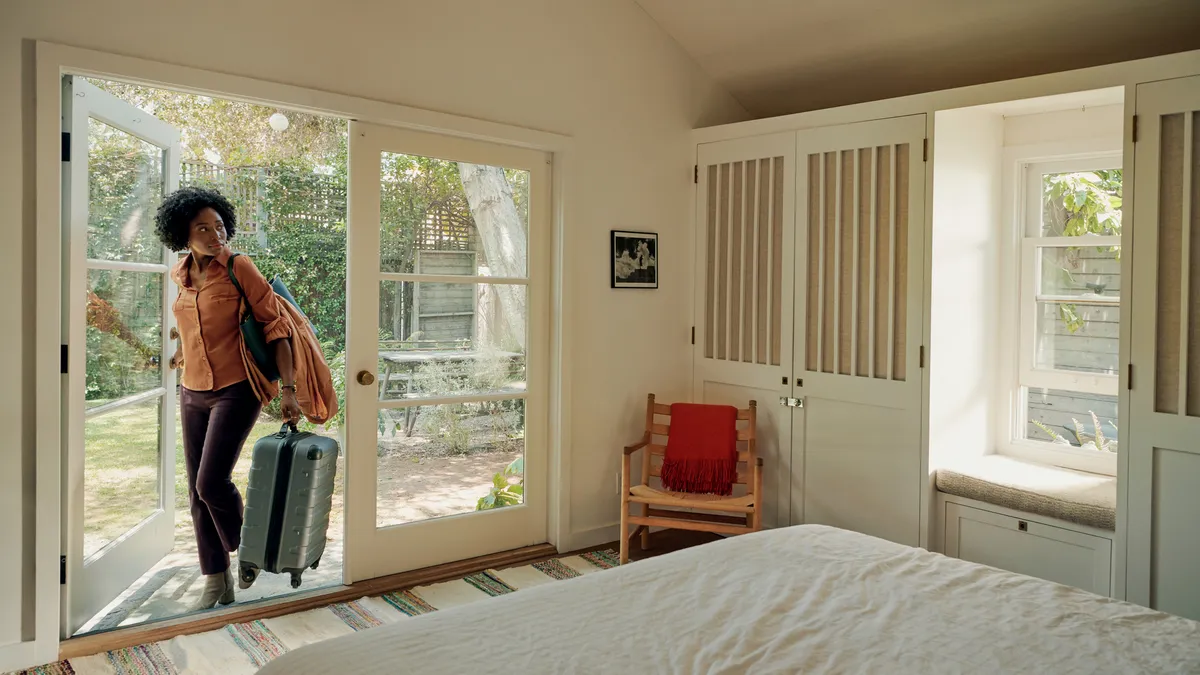Dive Brief:
- Airbnb this week launched a new data portal designed to give governments and tourism organizations more insight into Airbnb listings and community activity, and to help leaders ensure residents comply with any travel restrictions imposed during the new coronavirus (COVID-19) pandemic.
- The City Portal will provide select cities with a dashboard including information on economic activity and travel trends; compliance tools to help city leaders manage and establish short-term rental policies; and a channel for more direct communication with Airbnb.
- The pilot will kick off in 15 cities and counties including New Orleans, Seattle, San Francisco and Vancouver. Feedback from the pilot cities will help to inform a more widespread deployment of the portal.
Dive Insight:
Even before COVID-19, Airbnb had expressed a desire to work with local governments on addressing some concerning trends around use of the platform in cities. One of those trends included the growing popularity of "party houses," or rental houses that sometimes host hundreds of people, in violation of local rules around the size of gatherings. Airbnb banned users under the age of 25 from renting homes as a result, and city leaders can now directly go to the City Portal platform to block a party house from appearing on the platform.
Trends in travel destinations have also changed during the pandemic. People are traveling to smaller cities and more rural areas than urban locations, Airbnb Senior Vice President for Global Policy and Communications Chris Lehane said in an interview. More Airbnb customers are traveling to New York's Hudson Valley and the Catskills, for example, than New York City, he said.
Airbnbs and other short-term rentals have also recovered in a different way than others in the hospitality industry, particularly hotels, according to Lehane.
In fact, tourism hubs like Las Vegas were the hardest hit by U.S. unemployment trends at the start of the summer. And the state of Nevada currently faces a $1.2 billion budget shortfall as its economy is largely reliant on the hospitality industry to generate sales tax and tax revenue. Airbnb is hopeful the new data portal can boost tourism spend and tax revenue as localities grapple with strapped budgets amid the pandemic.
Although the pandemic has wreaked havoc on some major tourism hubs, there could be a new financial opportunity for some smaller cities to take advantage of their new or existing influx in travelers. For instance, the company says its tax agreements have made it easier for local jurisdictions to collect tax revenue from Airbnb rental income.
"Read my lips, we want to pay our taxes," Lehane said at a U.S. Conference of Mayors meeting in January 2016. Since then, the company has collected and remitted over $2 billion in tourist and occupancy taxes around the globe. And 72% of Airbnb bookings for listings in the U.S. are "already covered by collection and remittance of tourism or hotel taxes," a company blog post reads.
The City Portal dashboard can also help local officials by providing macro- and micro-level data on who's traveling, what neighborhoods they're staying in, how much they're spending and where they're spending, according to Lehane.
The portal comes as Airbnb prepares for an initial public offering (IPO), which is expected to happen this fall.












